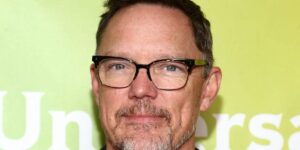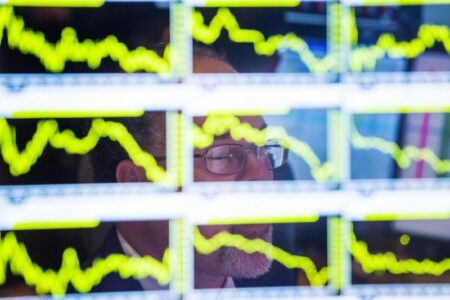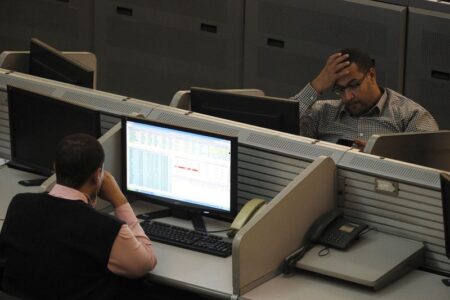Vivos Therapeutics, Inc. (VVOS) reported a positive shift in its financial metrics for the second quarter of 2024, with a 19% increase in total revenue compared to the same quarter in the previous year. This growth is attributed to higher sales and a decrease in discounts for Vivos appliances and guides, coupled with a rise in revenue from Vivos Integrated Provider (VIP) enrollment and oral appliance arches.
The company also announced a strategic marketing and distribution alliance in Colorado, which is expected to enhance product accessibility and reduce reliance on VIP enrollments for revenue. In addition to revenue growth, Vivos Therapeutics achieved a significant reduction in both operating loss and net loss, indicating an improved financial position and a strategic pivot toward the medical community for the adoption of their obstructive sleep apnea (OSA) treatment.
Key Takeaways
- Vivos Therapeutics reported a 19% increase in total revenue for Q2 2024 compared to Q2 2023.
- The company enrolled 32 VIPs and recognized $1.2 million in VIP enrollment revenue, a 28% increase from the previous year.
- Revenue from the sale of oral appliance arches rose by 28% compared to the same period last year.
- Operating loss and net loss saw significant reductions, with operating loss decreasing by 57% and net loss by 65% for the quarter.
- Vivos closed a $7.5 million equity growth investment to bolster its cash position.
- A new strategic alliance in Colorado is expected to expand product access and contribute to revenue and profit growth.
Company Outlook
- Vivos aims to achieve positive cash flow from operations in the near future.
- The company is focusing on the medical community to increase adoption of their OSA treatment.
- Vivos anticipates acceleration in patient uptake in the coming months.
Bearish Highlights
- Despite reductions, the company still reported operating losses and net losses.
- Vivos is in a transition period and is seeking patience while determining the impact of recent changes.
Bullish Highlights
- Vivos received FDA clearance for their OSA treatment, resulting in high patient adoption rates.
- The company expects about $8 million in revenue for every 100 patients treated.
Misses
- There were no specific misses reported during the earnings call.
Q&A Highlights
- The CEO emphasized the need to add personnel to support the revenue potential from recent acquisitions.
- New affiliations are planned, with a focus on understanding the revenue and EBITDA opportunities per patient.
- The CEO expressed confidence in the experienced team’s ability to manage operations.
Vivos Therapeutics’ earnings call painted a picture of a company in a period of strategic realignment, with promising growth in revenue and a concerted effort to reduce losses. The company’s pivot toward the medical community and the establishment of new strategic alliances are key components of their plan for sustained growth and profitability. As Vivos continues to execute on its strategy, investors and stakeholders are encouraged to look forward to future updates on the company’s progress.
InvestingPro Insights
Vivos Therapeutics, Inc. (ticker: VVOS) has demonstrated a promising uptick in quarterly revenue, indicating a positive trajectory in the company’s sales and marketing efforts. To further understand Vivos Therapeutics’ financial health and market position, let’s delve into some key metrics and insights from InvestingPro:
InvestingPro Data reveals a Market Cap of approximately $7.64 million, suggesting that Vivos operates within the small-cap segment of the market, which is often associated with higher growth potential but also higher volatility. Despite the positive revenue growth reported for Q2 2024, the company’s Revenue Growth over the last twelve months is at -9.24%, reflecting some challenges in sustaining growth over a longer period.
The Gross Profit Margin is notably high at 60.07%, which typically indicates a strong ability to control costs relative to revenue. However, the Operating Income Margin at -120.3% shows that the company is still facing significant challenges in achieving operational profitability.
InvestingPro Tips highlight several aspects investors should consider. Firstly, Vivos holds more cash than debt on its balance sheet, which is a positive sign of financial stability. However, the company is quickly burning through cash, which could be a concern for its long-term financial health. Moreover, the stock has fared poorly over the last month, with a 1 Month Price Total Return of -21.92%, reflecting recent market sentiment.
For those looking for a deeper dive into Vivos Therapeutics’ financials and market performance, InvestingPro has 9 additional InvestingPro Tips available at These tips can provide investors with further insights into the company’s valuation, cash flow yield, and analysts’ profitability expectations.
In summary, while Vivos has shown promising signs of revenue growth and has a significant gross profit margin, the broader financial context provided by InvestingPro suggests that there are several areas for potential concern, including cash burn and recent stock performance. Investors considering Vivos Therapeutics as part of their portfolio should weigh these factors carefully.
Full transcript – Vivos Therapeutics Inc (VVOS) Q2 2024:
Operator: Good day, everyone, and welcome to the Vivos Second Quarter 2024 Earnings Conference Call. [Operator Instructions] This conference is being recorded, and a replay of today’s call will be available in Investor Relations section of Vivos’ website and will be remaining posted there for the next 30 days. I will now hand the call over to John Lee, Vivos’ Executive Vice President of Marketing, for the instructions and the reading of the Safe Harbor statement. Please go ahead.
John Lee: Thank you, operator. Hello, everyone, and welcome to our conference call. A copy of our earnings press release is available on the Investor Relations section of our website at www.vivos.com. With us on the call today are Kirk Huntsman (NYSE:), Vivos’ Chairman and Chief Executive Officer; and Brad Amman, Chief Financial Officer. Today, we’ll review the highlights and financial results for the second quarter 2024 as well as more recent development and Vivos’ plan for the rest of 2024. Following these formal remarks, we will be happy to take questions. I would also like to remind everyone that today’s call will contain certain forward-looking statements from our management made within the meaning of Section 27A of the Securities Act of 1933, as amended, and Section 21E of the Securities and Exchange Act of 1934, as amended, concerning future events. Words such as aim, may, could, should, projects, expects, intends, plans, believes, anticipates, hopes, estimates, goal, and variations of such words and similar expressions are intended to identify forward-looking statements. These statements involve significant known and unknown risks and are based upon a number of assumptions and estimates, which are inherently subject to significant risks, uncertainties and contingencies, many of which are beyond company’s control. Actual results, including without limitation, the results of Vivos’ growth strategies, operational plans, including sales, marketing, distribution, product acquisition and integration, research and development, regulatory initiatives, cost savings plan and plans to generate revenue, as well as future potential results of operations or operating metrics such as the potential for Vivos to achieve future positive cash flow or profitability and other matters to be addressed by Vivos’ management in this conference call may differ materially and adversely from those expressed or implied by such forward-looking statements. Factors that could cause actual results to differ materially include, but are not limited to, the risk factors described and other disclosures contained in Vivos’ filing with the Securities and Exchange Commission, including the risk factors and other disclosures in our Form 10-K for the year ended December 31, 2023, and other filings with the SEC, including our second quarter 10-Q filed with the SEC today, all of which are — or will be accessible on the Investor Relations section of Vivos’ website as well as the SEC’s website. Except to the extent required by law, Vivos assumes no obligation to update statements as circumstances change. Finally, please be aware that the U.S. Food and Drug Administration has given certain specific Vivos appliances 510(k) clearance to treat mild to severe OSA. With the FDA clearance for severe last November, treatment of patients with severe OSA with these specific appliances is no longer needed to be performed off-label at the clinical discretion of the treating doctor and is now an integral part of the Vivos treatment protocol. Treatment of OSA of any severity or any other condition with any other Vivos’ FDA-cleared devices remains at the clinical discretion of the treating doctor. Now at this time, it’s my pleasure to introduce Brad Amman, CFO of Vivos. Brad, please go ahead.
Brad Amman: Thank you, John, and good afternoon, everyone. Today, I will review the highlights of our financial results for the second quarter of 2024. For further information on our results for the three and six month periods ended June 30, 2024, please see our earnings release, which was distributed earlier today, and our quarterly report on Form 10-Q, which is available on the SEC filings portion of the Investor Relations section of our website, as John mentioned, at www.vivos.com. Today, we are pleased to report second quarter 2024 total revenue of $4.1 million compared to $3.4 million for both the second quarter of 2023 and the first quarter of 2024, a 19% increase both sequentially and year-over-year. This year-over-year growth was due to an increase of approximately $400,000 in product revenue from higher sales and fewer discounts of Vivos appliances and guides, coupled with an increase of $200,000 in service revenue, reflecting an increase in Vivos Integrated Provider, or VIP, enrollment revenue, which you will recall we recognize over time, as well as an increase of $100,000 in sponsorship, seminar and other service revenue. This was partially offset by a decrease of $100,000 in Myofunctional Therapy revenues. Billing Intelligence Service and home sleep testing service revenue remained relatively unchanged year-over-year. For the six months ended June 30, 2024, total revenue was $7.5 million compared to $7.3 million for the comparable period in 2023. During the second quarter of 2024, we enrolled 32 VIPs and recognized VIP enrollment revenue of $1.2 million, a revenue increase of 28% compared to the second quarter of 2023 when we enrolled 43 VIPs for a total of $900,000 in revenue. Approximately $600,000 in revenue was attributable to accelerated revenue recognition on several contracts for VIPs who did not complete their required training during the first 90 days of their enrollment. Please refer to our 10-Q for further details, particularly on our revenue recognition policy for enrollments. For the six months ended June 30, 2024, we enrolled 82 VIPs and recognized VIP enrollment revenue of approximately $2.1 million, a revenue decrease of 6% compared to the same period last year when we enrolled 81 VIPs for a total of $2.2 million. While the number of VIP enrollments increased slightly, revenue was impacted by updates to key inputs in our revenue recognition methodology primarily estimated customer lives and the addition of new entry levels into the VIP program at lower price points. We sold 2,033 oral appliance arches during the second quarter of 2024 for a total of $2 million, a 28% increase in revenue compared to 2,083 oral appliances during the second quarter of 2023 for $1.5 million. The increase in revenue is directly attributable to a 71% decrease in discounts offered during the second quarter of 2024 compared to the same period last year. For the six months ended June 30, 2024, we sold 4,029 oral appliance arches for a total of $2.9 million, a 5% increase in revenue compared to the same period in 2023 when we sold 4,452 oral appliance arches for $2.8 million. The increase is directly attributable to a 45% decrease in discounts offered during the six month period in 2024 compared to the comparable period in 2023. As Kirk will discuss in more detail, in late July, we began to see patients from our strategic marketing and distribution alliance with an operator of several sleep testing and treatment centers in Colorado. As a result, the fourth quarter of this year will be the first full quarter of operations with this new strategic revenue initiative, which is based on collaborations to better align our interest with referring medical professionals. We expect this will be — materially broaden the number of OSA patients who have access to Vivos’ products and make our revenue less reliant on VIP enrollments going forward. Gross profit was $2.7 million for the second quarter of 2024 compared to gross profit of $2.1 million for the comparable period in 2023. The increase was primarily attributable to the increase in revenue. Gross margin for the second quarter of 2024 was 65% compared to 62% for the second quarter of 2023. For the six months ended June 30, 2024, gross profit was $4.6 million compared to gross profit of $4.4 million in the same period in 2023, attributable to the increase in revenue again. Gross profit for the six month period ended June 30, 2024, remained constant at 61% compared to the same period in 2023. Sales and marketing expenses decreased by about $300,000 or 46% to $300,000 for the second quarter of 2024 compared to $600,000 for the second quarter of 2023. This decrease was primarily driven by lower sales commissions as well as sales-related and digital marketing expenses. For the six months ended June 30, 2024, sales and marketing expense decreased to $1 million compared to slightly over $1.2 million for the same period in 2023. This decrease was primarily driven by the same factors I mentioned earlier. As we’ve said previously, we are committed to increasing efficiencies and significantly lowering our cash burn rate as we seek to prudently use our capital resources and to achieve our main goal of cash flow positive operations. This trend continued in the second quarter as we again achieved a significant reduction in G&A expenses. Importantly, the second quarter marked the eighth consecutive quarter in which we’ve been able to continue with this trend. For the second quarter of 2024, general and administrative expenses decreased $1.8 million or 30% to $4.1 million compared to $5.9 million for the second quarter of last year. This year-over-year decrease reflects the success of our cost-cutting efforts as we move toward our goal of positive results from operations. For the six months ended June 30, 2024, G&A expenses decreased $3.4 million to $9 million or approximately 27% compared to $12.4 million for the six months ended June 30, 2023. The decrease reflects lower professional fees and a reduction in personnel and related compensation. Total operating expenses for the second quarter of 2024 decreased by a significant amount, $2 million or 31% versus the second quarter of last year. As noted, this represents our eighth consecutive quarter where we have reported year-over-year decreases in operating expenses, and it is mainly due to the cost-cutting initiatives we have taken since the middle part of 2022, throughout 2023 and as well as in 2024. For the six months ended June 30, operating expenses decreased by $3.7 million or 26% compared to the same period last year. Our cost-cutting initiatives and lower G&A also contributed to a significant year-over-year reduction in operating loss, which decreased $2.9 million or 57% versus the second quarter of 2023. For the six months ended June 30, 2024, operating loss decreased by $3.8 million or 40% compared to the same period last year. Net loss for the second quarter of 2024 decreased by 65% to $1.9 million compared to a loss of $5.5 million for the same period in 2023. For the six months ended June 30, 2024, net loss decreased by 21% to $5.7 million compared to a net loss of $7.2 million for the same period last year. Turning now to our statement of cash flows. Cash burn from operations for the six months ended June 30, 2024, was $5.6 million, a decrease of approximately 13% or $800,000 compared to $6.4 million during the comparable prior year period. This decrease is due primarily to the $1.5 million decrease in net loss in the absence in 2024 of an unfavorable net change in fair value of warrant liability of about $2.3 million, offset by an increase in accounts receivable, a decrease in contract liability, accounts payable, accrued expenses and other liabilities and a decrease of approximately $800,000 in the fair value of warrants issued for services. For the six month period ended June 30, net cash used in investing activities of $200,000 consisted of capital expenses for software related to development of our ordering software platform, which is expected to be placed in service this year. This compares to net cash used in investing activities of $0.5 million in the comparable 2023 period, arising from capital expenditures for the same ordering software as well as an asset purchase of intellectual property. For the six months ended June 30, 2024, net cash provided from finance activities of $11.4 million is related to our February warrant inducement transaction and our June strategic pipe transaction. This compares to net cash provided from financing activities in the comparable 2023 period of $7.4 million, reflecting our January of 2023 private placement. As previously announced, to augment our liquidity position and stockholders’ equity, in June of 2024, Vivos closed on a $7.5 million equity growth investment from an affiliate of New Seneca Partners, a leading middle [ph] market private equity firm. This investment is more than sufficient for us to demonstrate compliance with NASDAQ’s minimum equity requirement as of the end of the quarter and materially bolsters our cash on hand to facilitate the launch of the new strategic alliance I mentioned earlier, which is expected to positively impact Vivos’ revenue growth. Kirk will speak more on this shortly. As of June 30, 2024, we had approximately $6.9 million of cash and cash equivalents compared to $1.6 million as of December 31, 2023. Our stockholders’ equity at June 30 was approximately $6.3 million. In conclusion, we reported solid results for the second quarter, which included both sequential and year-over-year revenue growth. We also continue to take actions to improve our cost structure and reduce cash burn while strengthening our cash position, which was evident in our results. Based on our progress to date, Vivos continues to anticipate attaining positive cash flow from operations in the foreseeable future. I want to thank you all for joining us today on our conference call. Now I’ll turn the call over to Kirk Huntsman, Chairman and CEO. Kirk, please go ahead.
Kirk Huntsman: Thank you, Brad. Good afternoon, everyone, and thank you for joining us on today’s conference call. The second quarter of 2024 was a period of significant progress for Vivos along a number of fronts. Just to recap and highlight a few financial metrics, year-over-year same period revenue, up 19%, with product revenue up 28%. Year-over-year same period operating losses, down 57%. Year-over-year same period net loss, down 65%. Year-over-year six months operating losses, down 40%. Year-over-year six months net loss, down 21%. Consecutive quarter gross profit, up 26%. Consecutive quarter net loss, down 49%. Consecutive quarter net loss per share, down 63%. Cash and cash equivalents on hand at December 2023, $1.6 million. Cash and cash equivalents on hand in June 2024, $6.9 million. So you can see from that brief overview, the second quarter of 2024 saw the culmination of many long hours of work our team has been putting in to get our company in a position to succeed long-term. As Brad just mentioned, this quarter marked our eighth consecutive quarter where we’ve delivered lower operating expenses on a year-over-year basis. And as we’ve said before, we aren’t done yet as we continue to explore ways of cutting costs without harming revenue. We believe this methodical effort patiently executed over time has put Vivos in a much better position to now execute on our new strategic marketing and distribution model. As we have previously indicated, our new strategic alliance model is designed to deliver higher total revenue per clinical case along with higher gross profit. In July, we launched the first phase of our first strategic alliance with a multicenter sleep clinic operation right here in Colorado. Although it is still very early, we can confirm that our previously reported experience in terms of patient acceptance and other conversion metrics seem to have carried over as expected into this new initiative. One thing that we have been seeing that we haven’t seen previously is that about half of the OSA patients that we’re seeing at this medical sleep clinic are so excited about the Vivos treatment options that they’ve been referring friends and family members in for evaluation and treatment as well. When nearly 50% of your patients refer people in like that, we believe it bodes well for a strong future organic growth. All of that, of course, is very good news, and it is very good news that has us very optimistic about things going forward. This last initiative that began just last month is what we’ve been talking about and working toward for many months. As previously stated, we believe this strategic pivot towards medical-based, full-service breathing and sleep centers represent an inflection point for us that will materially alter our prospects for growth and profitability. Looking at the next few months, we fully expect to see an acceleration of that improvement as we move into the last part of 2024 and into 2025. To give you a sense of the leverage we see in this new model, our current calculations are that for every 100 OSA patients per month that we put into Vivos treatment of some kind, we should realize top line revenues of nearly $8 million annually with high profitability. For further perspective on this, our first strategic alliance partner currently sees referrals of several hundred potential OSA patients per month, most of whom we believe could be excellent candidates for Vivos treatment. In addition, we are currently in negotiations with six other sleep testing groups and medical doctor based sleep centers from around the United States who together see upwards of 5,000 OSA patients per month. These groups typically operate on a high-volume, low-margin business model and are very intrigued by the higher-margin products and services Vivos can bring to the table. Our latest FDA clearance to treat severe OSA patients using our CARE oral medical devices is proving to be a real asset in helping us open these doors. We have been pleased by the generally warm and welcoming reception we receive from sleep doctors who seem desperate and even relieved to have viable alternatives to CPAP. Vivos thus represents a compelling and safe clinical option as well as a powerful revenue and profit growth opportunity on a scale they’ve never seen before. We thus believe we are just barely scratching the surface of what is possible as we continue to roll forward. There are reportedly over 2,500 AASM, that’s the American Academy of Sleep Medicine, accredited sleep testing labs and testing centers across the United States, with well over 100,000 new OSA patients being diagnosed each month. An estimated 80% to 90% of all OSA patients remain undiagnosed and untreated. So we see a huge opportunity here with this new model, and we are fortunate to have garnered the support of long-term investors who share our vision. We recently secured a $7.5 million private equity investment and entered into a strategic relationship with New Seneca Partners, a leading North American private equity sponsor. Seneca’s investment, which comes on the heels of nine months of due diligence by Seneca, in which they have assisted crafting our new model, has provided a substantial boost to our cash on hand and stockholders’ equity. With this increased liquidity, we have moved ahead with the launch of our new strategic alliance and potentially other similar alliances. All of this is expected to positively impact Vivos’ revenue growth. In closing, I would simply say that Vivos has weathered the storm and is now emerging even stronger with an exciting new business model that has the potential to finally put our technology into use for thousands and perhaps tens of thousands of people who may never have seen or heard of it otherwise. So on behalf of all of us here at Vivos, I would like to express my sincere appreciation to all of those who have stood by us while we figured this out. It has been a long journey, but we firmly believe we are on the right track and we’ll soon begin to see the full potential of our technology being realized and the full financial potential of this company as well. That concludes our prepared remarks. Now we’ll be happy to take questions. Operator?
Operator: [Operator Instructions] And we now have our first question, it comes from the line of Do Kim from Water Tower Research. Your line is now open. Please go ahead.
Do Kim: Great. Hi, thanks for taking my question and congrats on the quarter’s results. First, for Kirk, it seems that the strategic alliance with the sleep clinic is pretty important in the evolution of Vivos Therapeutics. Could you maybe expand on that a little bit? And when you say that you’re seeing you had previously reported experience in terms of like patients acceptance, are you referring to your marketing pilot study and the high rate of patients that choose Vivos’ oral appliances?
Kirk Huntsman: Yes. Great question, and thank you for that. So as to the importance of this strategic pivot, I think I can’t overstate how important this is for the company. The truth of the matter is in being sort of locked into a dental-only channel of distribution, we found that there were just simply too many dentists that just got distracted by dental things. And it wasn’t a reliable — it’s certainly not a scalable source of growth and opportunity for us. So we realized that, that was not going to happen. There were some doctors, some dentists out there that were extremely, extremely successful with it and extremely profitable doing it, but there weren’t enough of them. So when we looked around and we said, how, where is the model here for success? And the model is clearly with dentists and physicians working together. And by that, I mean physicians who have patients who they either suspect have obstructive sleep apnea or who they know have obstructive sleep apnea and they want alternative treatment options besides CPAP. In today’s world, 90% to 95% of all patients who are diagnosed with OSA are prescribed with CPAP. And most of those patients, I think it’s safe to say the vast majority of them, would rather have anything else than a CPAP to wear to bed every night. And so to have an alternative that doctors can prescribe, and now that we have the severe sleep apnea clearance from the FDA, that opens up the door for medical doctors to feel very comfortable in saying, look, there’s a couple of first line treatment options now available and approved by FDA. One is the CPAP. The other is this treatment from Vivos, and you can be in and out treatment in 12 months and blah, blah, blah. So what we wanted to do is we wanted to test our thesis on this. And so we dispatched our people over the last sort of year, about a year’s time. And behold, we’ve discovered that we’re pretty good at putting our treatment in front of patients along with all their options in a fully informed basis. And patients, when they hear the story, they really want what we have to offer. And so we were seeing patients selecting our treatment at very high rates, 70%, 80%, 90% in some cases. And so we said if that’s what it takes, let’s put ourselves in front of the most patients. And let’s find ways to change our model so that we can do that. So our pivot to medical, the medical community, is a pivot towards putting ourselves in the best place to get traction and adoption for our treatment. And what we found is when we’ve been up there at CSI the last few weeks, the things that we experienced in our study, in our pilot study are exactly the same things that we experienced up there. Patients are thrilled to have another option. They’re thrilled to know that there’s hope, that they can resolve their OSA symptoms without having to wear some type of a device for life. And so the uptake for our treatment has been extremely gratifying. We have not, in the month of July, we have, just to be really clear, we have not had as many at bats as we would have liked to have with being in front of as many patients as we would like to see, but that’s all a function of just sort of getting our first few weeks under our belt and sort of getting everybody geared up and all that. So as we move forward now into August, September, October and the last part of the year, I think you’re going to see this accelerate. And as we mentioned earlier, for every 100 patients, it puts about $8 million, almost $8 million into the coffers here. So it’s a very accretive, very profitable way of looking at our business and also delivering on a much larger scale. There are thousands and tens of thousands and hundreds of thousands of patients who are out there, either who have been given a CPAP and don’t want it or who would like to have the options going in. And we see this as just the very, very early stages of a very big inflection point for this company. So I hope that answers your question. Did I get all of that? I think I did.
Do Kim: Yes, you did. I mean a 70%, 80% conversion rate would mean an amazing opportunity for you guys. That’s extraordinary. What do you see happening with the VIP doctors or dentists that you’ve enrolled going forward?
Kirk Huntsman: Well, fortunately, for all of us, the market is huge, right? There’s not — we’re not going to be, we could treat all the patients that we see from the medical community and barely scratch the surface. And so there’s plenty of work for them to continue to do. We’re going to continue to support. We’re going to continue to train. We’re going to continue to teach. And we have our Vivos Institute here in Denver that is booked out fully for this next year, and we’re really excited about all the different courses that we’re offering now. And so the continuing education will be here, the training and support will be here. We’re just not going to go aggressively after dentists. They’ll have to, it will be more of an organic growth scenario for them. And we’ve lowered some of the prices for entry so that training is more affordable and all that. But our real focus here is going to be in this other channel through the medical community. But the Vivos doctors will continue to be, they’ll continue to be supported. They’ll continue to be catered to, and all the things that we’ve done in the past will continue for them.
Do Kim: Okay. That makes sense. And just one quick question for Brad. Congrats on the cost-cutting efforts. It looks like it’s really starting to reduce the cash burn. Maybe you could provide a little more detail about what happened over the last several quarters to achieve this. And is there more room for additional cost to come off?
Bradford Amman: Yes. Great question, Do. Thank you for that. In Q3 of 2021, our SG&A costs were around $8.7 million. In Q2 of this year, SG&A was around $6 million or $4.6 million. On a quarter-over-quarter basis for comparable quarters, we’ve seen a reduction of, on average, $2 million per quarter for eight consecutive quarters, and operational cash flow has been reduced from a high of over $6 million back in Q1 of 2022 to $3 million this quarter. This was certainly achieved through reductions in our workforce from a high of 180 employees to now, we have just over 100 employees. We cut website development expenditures, conferences, digital, print, marketing, travel, meals, entertainment and other costs. Non-essential vendors were either eliminated or restructured or renegotiated here recently. And we have new proposed expenditures, we need to go through an ROI analysis, return on investment analysis, to make sure that those additional expenditures or new — any new expenditures have a return on them. So we’re going to continue to review our expenditures, see what we can cut, what’s nonessential and what is essential. So we’ll continue to go down that path and trim where we need to trim. But the important thing is that we work both the top line and our expense side to get to a point where we’re positive cash flow from operations. Did that help?
Do Kim: Yes, absolutely. And it looks like it will pay off in the near future, hopefully. Great progress, guys. Thanks for taking my questions.
Bradford Amman: Thank you, Do.
Operator: Thank you. And the next question comes from the line of Lucas Ward from Ascendiant Incorporated. Your line is now open. Please go ahead.
Lucas Ward: Thank you. Good afternoon, gentlemen and congrats on your business progress.
Kirk Huntsman: Thank you.
Lucas Ward: So I’m curious about, it seems like a significant portion of the revenue jump was due to lower discounts. Brad mentioned 70% lower discounts year-on-year. How does that come about? Was that just a unilateral policy, you just decided not to give them? Or did something in the business model change to achieve that?
Kirk Huntsman: Let me take that one. Well, a little bit of both. I mean it was a conscious effort and something that we just felt like, especially with some of our new regulatory clearances that frankly are unique and special, we just felt like it wasn’t really necessary for us to be discounting our products as much. So I think there’s a lot of things behind that. A lot of it has to do with some of the discounts that we were giving on the initial enrollments, etcetera. So I just think we’re taking a little bit more disciplined approach than we have to just sort of standing by our prices and standing by our, the value proposition that our treatment delivers. And so I think there’s a lot of work done by our people in accounting, Brad and his team, and also working with our clinical folks and our operations people to bring that about. But I think it was a conscious effort.
Lucas Ward: Okay. And then sort of similarly, you had a big sequential decline in sales commissions. So you’re saving $300,000 or something sequentially. Like is that also a unilateral…
Kirk Huntsman: We restructured all that. Yes, we restructured our sales force and restructured not only the number of salespeople that we had, but we also restructured the compensation model. And I think it — we did that with the specific — the express intent of achieving some savings and that’s what we were able to do. Yes, that was deliberate, yes.
Lucas Ward: Okay. With respect to overall operating expenses, which are now at $4.5 million, yes. What do you see as a steady state for operating expenses because they really went down a lot and they just keep going down?
Kirk Huntsman: Yes. I don’t think we see a steady state right now, and I’ll tell you why. And I realize this makes it harder for you guys to model something. But we’re simply, we’re pivoting into a new world here. And so we’ve continued to reduce staffing in the here into the third quarter. And so you could say that we’ve continued along that same track. But at the same time, we’re also staffing up in other arenas for the growth that we’re experiencing. So we have to go through a little bit of a transition time while we continue to cut back on some types of expenditures and some types of personnel. And then we’re actually also replacing them with other types of personnel that have to be trained and processed and sort of brought up to speed so that when the big bolus of patients begins to hit, which will — it’s literally going to be starting here in the next few weeks. When all of that starts to unfold, we got, we have to have the staffing and the doctors and the personnel in place to do that. So there’s — a steady state for us, I think we’re going to be — as we look at some of these acquisitions and some of the revenue potential sitting in these acquisitions, just those acquisitions alone, we’re going to need to add personnel just to be able to service the capacity — to have the capacity to process those patients through. So it’s just, I think just stay tuned as we announce some of these new affiliations and how we’ll try to provide you guys with some idea for what type of, how much of an impact, how many patients we’re expecting to flow through the system. And once, I think the key right now is to understand the more high-level dynamics of what happens when a patient comes through, what’s the revenue and EBITDA opportunity associated with each of those patients. And then I think as we start to fold more of those deals in with more and more flow, it will even out, and I think we’ll be able to talk about a steady state model that could be just sort of stamped out over and over again as we grow. But as we go through this a little bit of a transition time over the next quarters, so, Lucas, I would say, give us a minute to kind of get our arms around what that’s going to look like. I think we have a great plan. We’ve got really experienced people operating at the practice level. Keep in mind that most of our senior team here has vast experience in the practice, management practice operating world. We ran hundreds of dental practices for many years, and it’s not that much different. There’s obviously some nuances between medical and dental. But for the most part, dealing with providers, hiring staff, operating clinic, all those kinds of things transfer. So we feel really, really right at home here doing this. And we’re probably, it’s probably one of the strengths of our team. So we’ll be able to answer that question much more definitively, I think, next quarter.
Lucas Ward: All right. That’s all I have. Thank you very much.
Kirk Huntsman: Thank you, Lucas.
Operator: Thank you. I show no further questions in the queue. At this time, I would like to turn the call over to Mr. Kirk Huntsman, Chairman and CEO, for closing remarks. Please go ahead, sir.
Kirk Huntsman: Thank you, operator. Well, for those of you who’ve been with us and again, like I said earlier, those of you who’ve hung in there with Vivos while we’ve tried to figure this out, we’ve always realized we had something special with respect to our technology. And it was just a matter of trying to figure out how to get it out there and get it into the hands of the right people. So I would just like to thank everybody who’s hung in there with us, who is joining us today on this call. I’d like to extend a thank you to the people at, the folks over at Seneca, and their efforts to work with Vivos and support us here, as well as our Board and all those who have been longtime supporters of the company. We look forward to sharing our continued progress with everyone as we continue to execute on our plans during the remainder of this year and on into next year. So thank you very much, everyone, and please have a great evening. Thank you.
Operator: Thank you. This concludes our conference for today. Thank you all for participating. You may now disconnect.
This article was generated with the support of AI and reviewed by an editor. For more information see our T&C.
Read the full article here
















